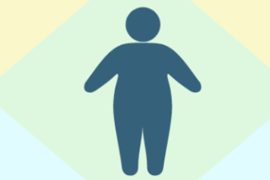It’s a common belief that cutting down on food intake is the key to shedding extra weight, but this approach may not always be safe or effective. When you significantly reduce your calorie intake, your body may enter “starvation mode,” a survival mechanism designed to conserve energy during periods of food scarcity. In this state, your metabolism slows down to preserve fat stores, making it harder to lose weight and, in some cases, even leading to weight gain.
This happens because the body becomes more efficient at storing the limited energy it receives. Instead of drastic calorie reductions, a balanced approach that includes moderate calorie control, nutrient-rich foods, and regular physical activity is generally more effective and sustainable for long-term weight management.
Here’s a detailed summary of each point:
1. Muscle Loss
- Impact on Metabolism: Eating too few calories can lead to muscle loss. Muscle tissue is metabolically active and burns more calories at rest compared to fat tissue. When muscle mass decreases, so does the basal metabolic rate (BMR), meaning the body burns fewer calories throughout the day. This slowdown in metabolism can make it harder to lose weight and increase the likelihood of weight gain.
- Long-Term Effects: Reduced muscle mass can also impair physical strength and function, affecting daily activities and overall fitness levels. Maintaining a balanced diet with adequate protein and engaging in resistance training can help mitigate muscle loss during weight loss efforts.
2. Essential Nutrient Deficiency
- Nutrient Imbalance: Restrictive diets often lack essential nutrients needed for optimal bodily functions. Deficiencies in vitamins and minerals can lead to various health issues, including hormonal imbalances.
- Hormonal Disruption: Hormones such as ghrelin (which stimulates appetite) and leptin (which signals satiety) can be disrupted by nutrient deficiencies. Imbalances in these hormones can increase hunger and cravings, potentially leading to overeating and difficulties in maintaining weight loss.
- Health Risks: Long-term nutrient deficiencies can affect immune function, bone health, and overall well-being. A well-rounded diet with a variety of nutrients is crucial for maintaining hormonal balance and overall health.
3. Increased Cortisol Production
- Stress and Cortisol: Strict dieting can induce stress, leading to elevated cortisol levels. Cortisol is a hormone associated with stress and can contribute to fat accumulation, especially around the abdomen.
- Visceral Fat: High cortisol levels are linked to increased storage of visceral fat, which surrounds internal organs and is associated with higher health risks, including cardiovascular disease.
- Management: To manage cortisol levels, it’s important to incorporate stress-reducing practices such as mindfulness, regular physical activity, and adequate sleep.
4. Adaptive Thermogenesis
- Body’s Protective Mechanism: Adaptive thermogenesis is the process by which the body reduces its energy expenditure in response to a lower calorie intake. This adaptation is designed to protect against starvation but can make weight loss more challenging.
- Weight Loss Efforts: As the body becomes more efficient at conserving energy, weight loss can plateau or become more difficult. Strategies to counteract adaptive thermogenesis include varying calorie intake, increasing physical activity, and focusing on sustainable, gradual weight loss methods.
Muscle Loss and Nutrient Deficiency:
- Muscle Loss: Reduces metabolic rate and affects overall calorie burn.
- Nutrient Deficiency: Disrupts hormonal balance and can increase hunger and cravings.
- Increased Cortisol: Linked to stress and abdominal fat accumulation.
- Adaptive Thermogenesis: Can slow down weight loss efforts as the body conserves energy.
To address these issues, it’s important to follow a balanced diet that meets nutritional needs, engage in regular exercise including strength training, manage stress levels, and adopt sustainable weight loss practices. Consulting with a healthcare professional or a registered dietitian can help in developing a personalized plan that supports overall health and weight management goals.
Disclaimer:
The information contained in this article is for educational and informational purposes only and is not intended as a health advice. We would ask you to consult a qualified professional or medical expert to gain additional knowledge before you choose to consume any product or perform any exercise.







